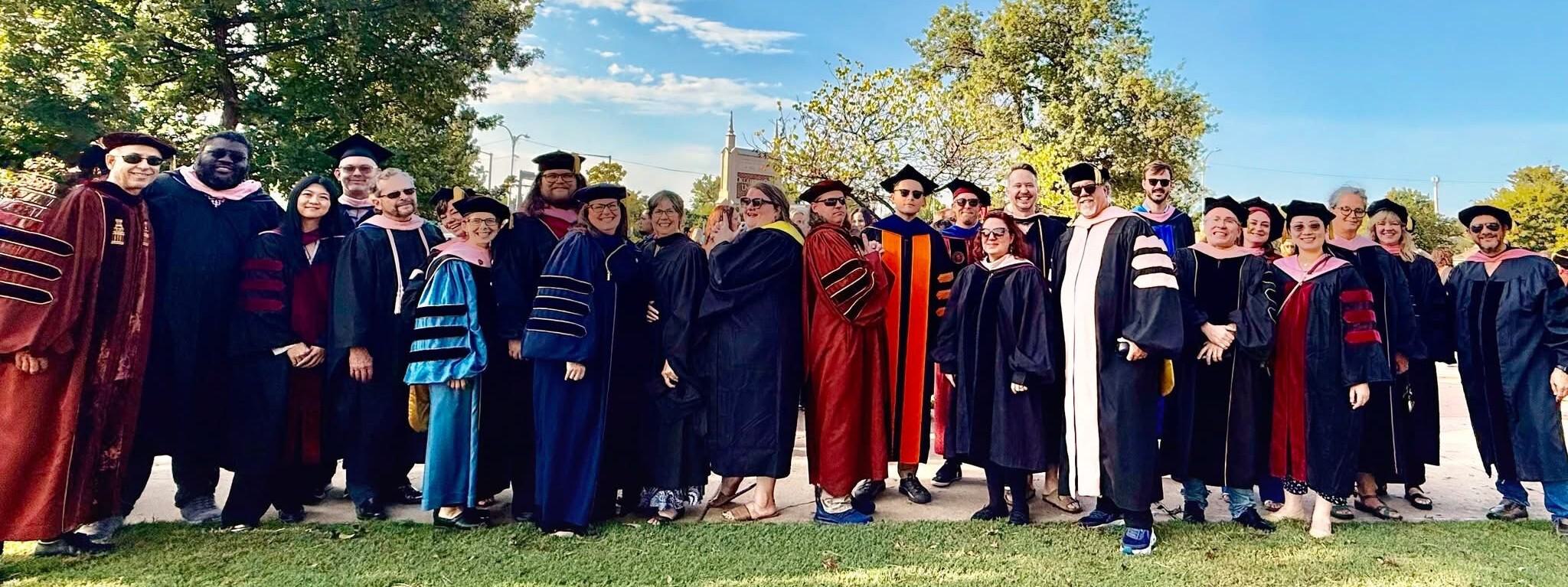Our faculty engage in dynamic creative and scholarly work that crosses disciplinary and pedagogical boundaries. Faculty scholars are leaders in their fields and present regularly at the annual meetings of the American Musicological Society, Society for Music Theory, and the Association for Theatre in Higher Education, among others. Their work models for students how the study of music is an art in itself. See below for examples of recently published work by our faculty.

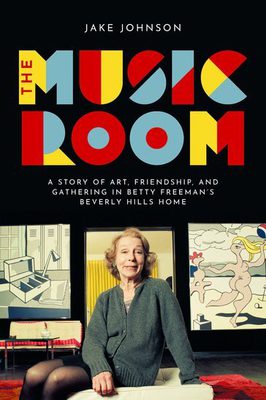
The Music Room: A Story of Art, Friendship, and Gathering in Betty Freeman's Beverly Hills Home
By: Dr. Jake Johnson, Associate Dean of the Wanda L. Bass School
From 1981 to 1994, music patron and art collector Betty Freeman (1921--2009) hosted a series of monthly musicales, or salons, in Los Angeles. Most of these salons were held in a room off the den of Freeman's Beverly Hills home--a space she dubbed "the music room." Freeman saw these salons as an important space to foster the development of contemporary composition among leading and upcoming composers in both America and Europe. Over the span of thirteen seasons, 144 composers, performers, and dignitaries in the contemporary music world spoke, performed, and shared their music before a gathering of elite arts administrators, scholars, critics, patrons, and composers from the greater Los Angeles area. Freeman and her co-organizer, music critic Alan Rich (1924--2010), ensured that young, local composers were frequently featured alongside established ones with international reputations, constructing a network of mentors and mentees within contemporary music.
The Music Room is a collection of transcriptions of tape recordings made at the salons and photographs Freeman took of these events that gives an unprecedented look inside one of the most significant musical gatherings of the last century. Among those famous today who appeared in the salons were John Cage, Libby Larsen, Pierre Boulez, Steve Reich, John Adams, György Ligeti, and Philip Glass. Featuring sixteen composers whose work and relationship with Freeman showcase the wide influence of her salon series, The Music Room is at once a record of these specific composers as well as a documented history of salon culture in America.
Available from

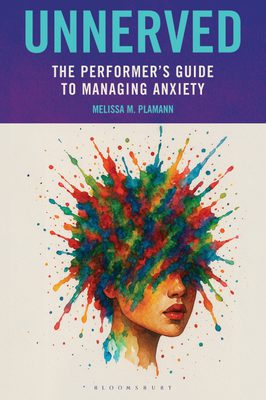
Unnerved: The Performer's Guide to Managing Anxiety
By: Dr. Melissa Plamann, Wanda L. Bass Chair of Organ, Professor of Music, Coordinator of Graduate Studies
A relatable and practical roadmap for combating each performer's unique brand of performance anxiety by discovering and managing root emotional drivers-it is designed to uncover what makes each individual performer “tick.”
Melissa Plamann provides an engaging and humorous book, chock-full of data, for anyone who experiences performance anxiety in any music and performing arts discipline at any age. After taking an objective stance to define “performance anxiety,” she examines treatment options, including medication and several types of therapy. She delves into personal responses to anxiety, looking at emotions of fear, shame, and anger, and then shows how performers can address and start managing their unique brand of performance anxiety based on these personal responses. Chapters deal with myriad other elements impacting performance anxiety, including the mind-body connection, suggesting that emotional turmoil and stress cause physical ailments and exacerbate the somatic expressions of anxiety. Also addressed are miscellaneous issues that predispose performers to increased anxiety: educational settings, hierarchical relationships, hormonal shifts, gender, and even the pandemic.
This book offers practical advice and insight for performers, gleaned from the author's lifetime of personal performance and practice as well as hundreds of interactions with students navigating their own performance anxiety.
Available from

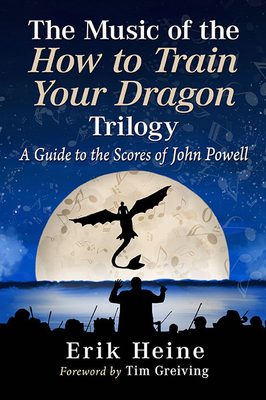
The Music of the How to Train Your Dragon Trilogy: A Guide to the Scores of John Powell
By: Dr. Erik Heine, Professor of Music Theory, Assistant Director of Honors Program
One of the many reasons why children and adults love the How to Train Your Dragon films is the music. John Powell composed the music for all three films, maintaining thematic consistency while writing new themes for each film. This book serves as a score guide for the How to Train Your Dragon trilogy. Every note has been examined to thoroughly discuss the music for Hiccup, Toothless and the other dragons, Vikings, and the enemies and friends that they encounter. It features interviews with the composer and nearly 100 musical excerpts.
Available from or

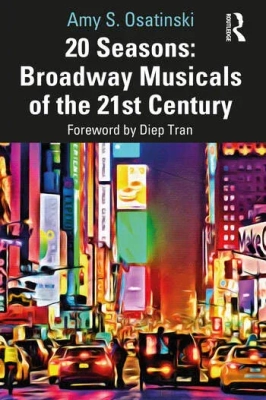
20 Seasons: Broadway Musicals of the 21st Century
By: Dr. Amy Osatinski, Associate Professor of Theatre History, Head of the BA in Theatre Innovation and Entrepreneurship
20 Seasons: Broadway Musicals of the 21st Century catalogues, categorizes, and analyzes the 269 musicals that opened on Broadway from the 2000-2001 season through the 2019-2020 season.
This book is the first to comprehensively examine the musicals that premiered on Broadway during this important historical period, which was bookended by the 9/11 terrorist attacks on one end and the Coronavirus pandemic on the other. It begins by exploring the historical context for the first 20 years of the 21st century and how this impacted American culture and theatre. Rather than chronologically, the musicals are then organized into categories based on their source material and whether they were original musicals or revivals, painting a detailed picture of the Broadway musical in first 20 years of the 21st century. Jukebox musicals, screen-to-stage musicals, revivals, and other original musicals are all covered, and each chapter ends with reading guides and discussion prompts. The book not only discusses what was produced, but by whom, uncovering the stark lack of representation for women and artists of color on Broadway musical creative and design teams. Additionally, the last chapter discusses the COVID-19 pandemic, the Broadway shutdown, and what happened to the Broadway musical during the shutdown, including the response to the Black Lives Matter movement in the summer of 2020.
20 Seasons: Broadway Musicals of the 21st Century will appeal to fans and scholars of musical theatre, as well as students of Musical Theatre, Musical Theatre History, American Studies, and Pop Culture Studies.
Available from or

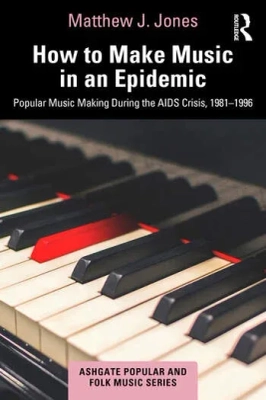
How to Make Music in an Epidemic: Popular Music Making During the AIDS Crisis, 1981-1996
By: Dr. Matthew J. Jones, Assistant Professor of Musicology
This volume examines responses to the epidemic of HIV/AIDS in Anglophone popular musicians and music video during the AIDS crisis (1981–1996).
Through close reading of song lyrics, musical texts, and music videos, this book demonstrates how music played an integral part in the artistic-activist response to the AIDS epidemic, demonstrating music as a way to raise money for HIV/AIDS services, to articulate affective responses to the epidemic, to disseminate public health messages, to talk back to power, and to bear witness to the losses of AIDS.
Drawing methodologies from musicology, queer theory, critical race studies, public health, and critical theory, the book will be of interest to a wide readership, including artists, activists, musicians, historians, and other scholars across the humanities as well as to people who lived through the AIDS crisis.
Available from and

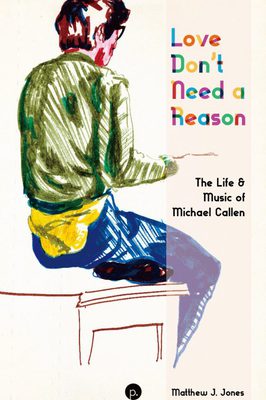
Love Don't Need a Reason: The Life and Music of Michael Callen
By: Dr. Matthew J. Jones, Assistant Professor of Musicology
From a stage erected in front of the US Capitol, on April 25, 1993, Michael Callen surveyed the throng: an estimated one million people stretched across the National Mall in the largest public demonstration of queer political solidarity in history. “What a sight,” he told the crowd, his earnest Midwestern twang reverberating through loudspeakers. “You’re a sight for sore eyes. Being gay is the greatest gift I have ever been given, and I don’t care who knows about it.” He then launched into a gorgeous rendition of “Love Don’t Need a Reason,” the AIDS anthem he composed with Marsha Malamet and the late Peter Allen. As Callen finished singing, people stood cheering and flashing the familiar American Sign Language symbol for “I Love You.” For they knew the song’s sentiment rang true for Callen, who had recently announced his retirement from music and activism after a living for more than a decade with what was then called “full-blown AIDS.” After the March on Washington, Callen returned to his recently adopted West Coast home, Los Angeles. In the ensuing months, his health rapidly declined, and on 27 December 1993, Callen died of AIDS-related pulmonary Kaposi’s sarcoma.
Love Don’t Need a Reason focuses on Callen’s most important and lasting legacy: his music. A witness to the overlooked last years of Gay Liberation and a major figure in the early years of the AIDS crisis, Michael Callen chronicled these experiences in song. A community organizer, activist, author, and architect of the AIDS self-empowerment movement, he literally changed the way we have sex in an epidemic when he co-authored one of the first safe-sex guides in 1983. A gifted singer, songwriter, and performer, he also made gay music for gay people and used music to educate and empower people with AIDS. Listening again to his music allows us to hear the shifting dynamics of American families, changing notions of masculinity, gay migration to urban areas, the sexual politics of Gay Liberation, and HIV/AIDS activism. Using extensive archival materials and newly-conducted oral history interviews with Callen’s friends, family, and fellow musicians, Matthew J. Jones reintroduces Callen to the history of LGBTQIA+ music and places Callen’s music at the center of his important activist work.
Available from and
